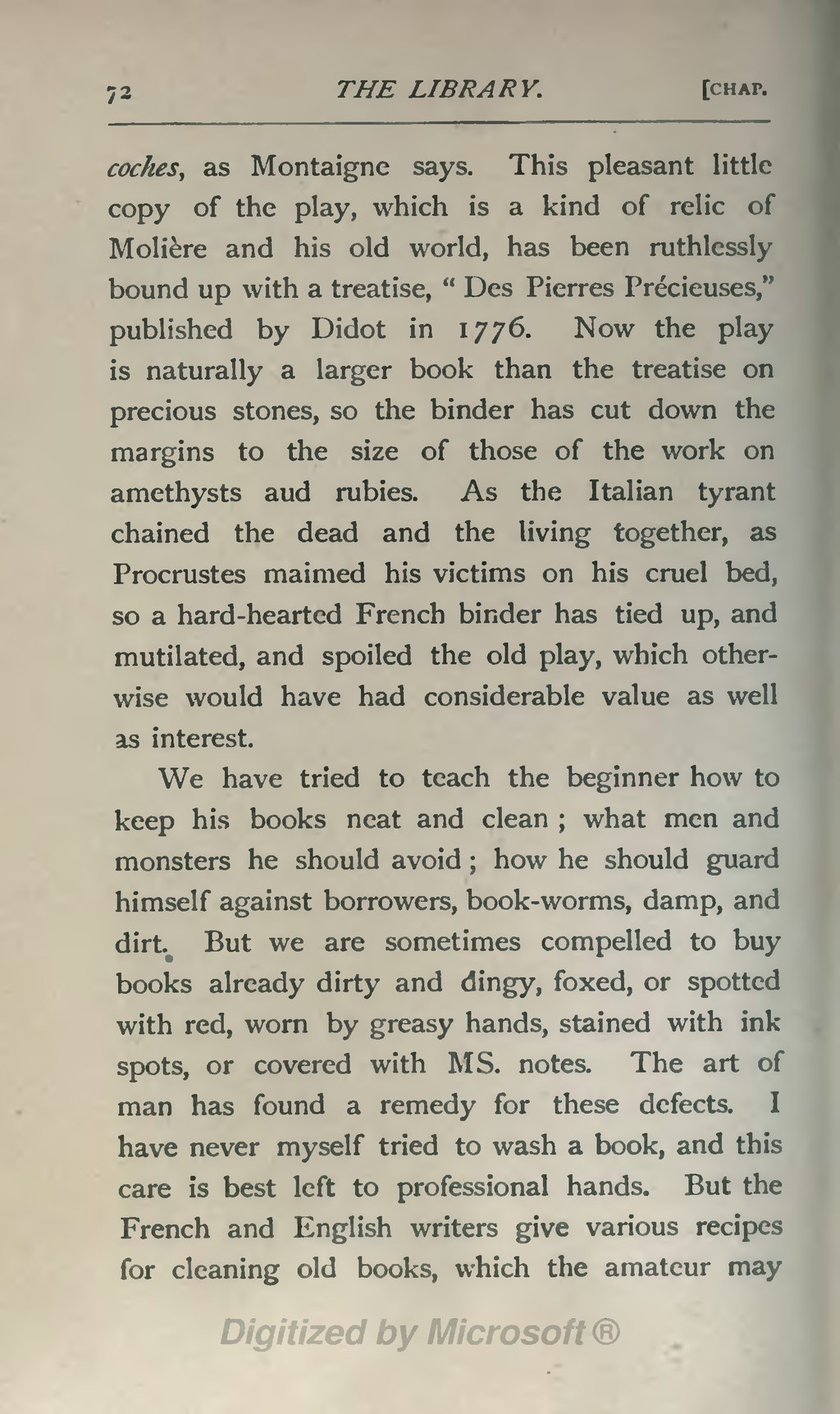coches, as Montaigne says. This pleasant little copy of the play, which is a kind of relic of Molière and his old world, has been ruthlessly bound up with a treatise, "Des Pierres Précieuses," published by Didot in 1776. Now the play is naturally a larger book than the treatise on precious stones, so the binder has cut down the margins to the size of those of the work on amethysts and rubies. As the Italian tyrant chained the dead and the living together, as Procrustes maimed his victims on his cruel bed, so a hard-hearted French binder has tied up, and mutilated, and spoiled the old play, which otherwise would have had considerable value as well as interest.
We have tried to teach the beginner how to keep his books neat and clean; what men and monsters he should avoid; how he should guard himself against borrowers, book-worms, damp, and dirt. But we are sometimes compelled to buy books already dirty and dingy, foxed, or spotted with red, worn by greasy hands, stained with ink spots, or covered with MS. notes. The art of man has found a remedy for these defects. I have never myself tried to wash a book, and this care is best left to professional hands. But the French and English writers give various recipes for cleaning old books, which the amateur may

